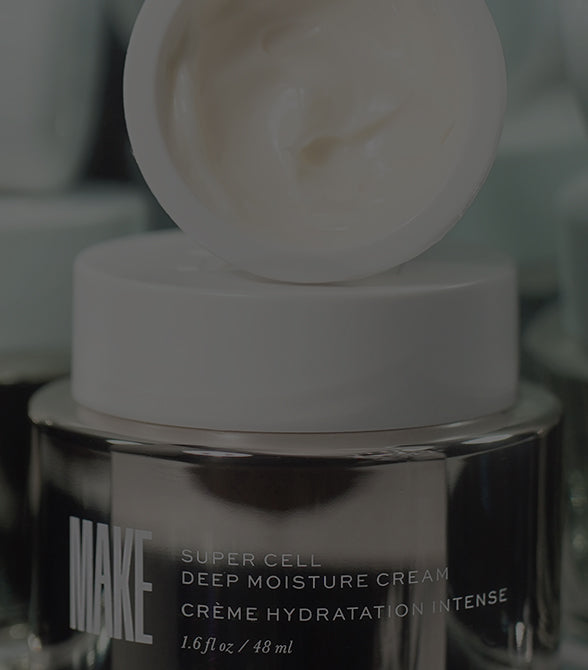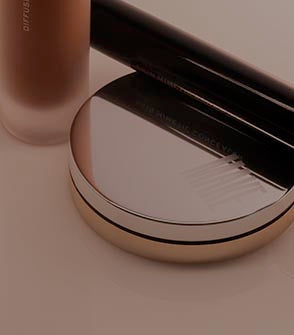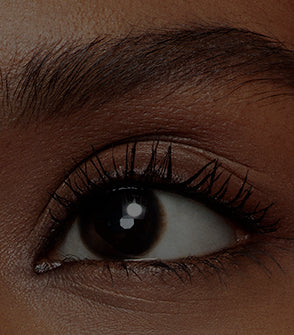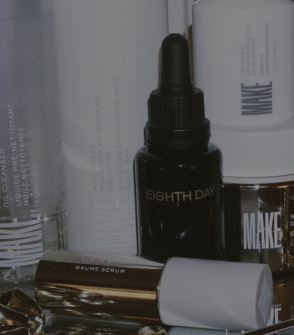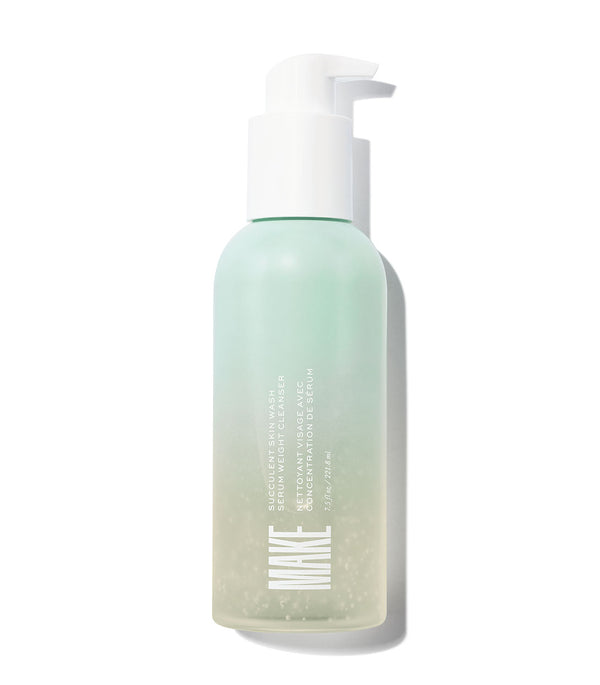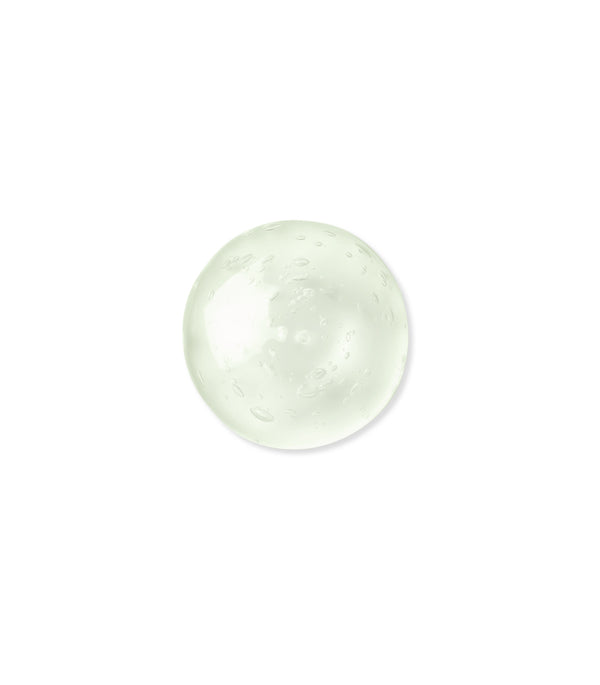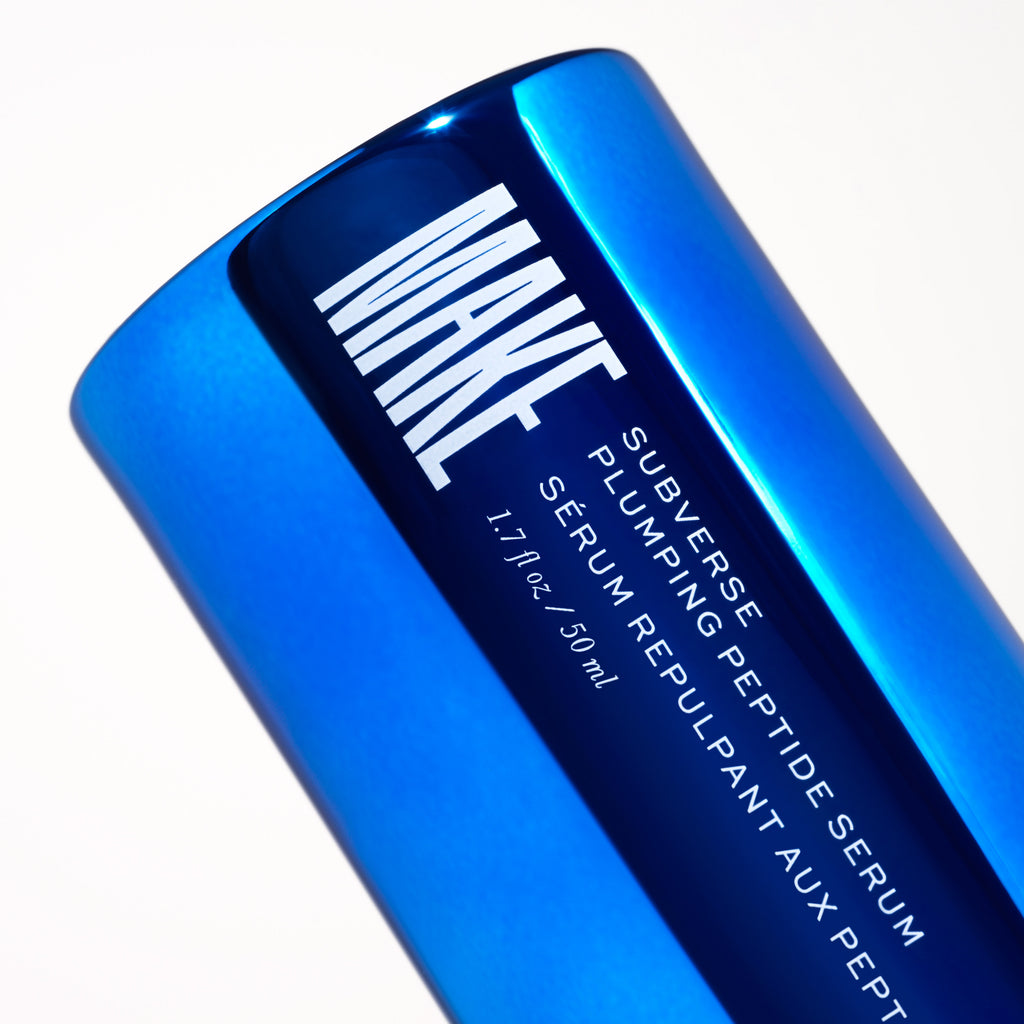One of the facets of our Lab Engineered Natural Ingredients (L.E.N.I.) is fermentation. Fermentation is a biotechnology process that has been around thousands of years. The making of cheese, bread, wine, kombucha, and numerous other foods and drinks rely on this ancient technique. Fermentation uses microorganisms such as yeast and bacteria which contain enzymes to anerobically (without oxygen) break down and convert energy-rich compounds, such as sugars, into simpler substances.1 This ancient art turned modern innovation is surfacing in skincare creating ingredients that are more potent, more bioavailable, less irritating, better preserved, have additional nutrients, and are better ethically sourced.

Increases Potency
Fermentation allows for isolation and concentration of phytochemicals for increased potency and efficacy. Concentrations of specific compounds can increase through the fermentation process as seen in a study comparing red ginseng to fermented red ginseng.2 The fermented red ginseng had higher levels of uronic acid, polyphenols, flavonoids, and antioxidant activity than the non fermented red ginseng. The study showed that the fermented ginseng had higher tyrosinase inhibition and elastase inhibition leading to increased skin lightening, decreased wrinkles, as well as reduced toxicological potency. Another study compared fermented soy milk extract with its non-fermented counterpart and showed it significantly increased hyaluronic acid production.3 Soy milk extract contains isoflavones as well as their respective β-glycosides which are simply the isoflavones attached to large sugar molecules. The isoflavones increase hyaluronic acid production while the β-glycosides don’t. Fermentation with Bifidobacterium bacteria removes the sugar molecules allowing the isoflavones to become biologically active thus increasing hyaluronic acid production. These are just two of many examples of fermentation making a raw material more nutrient dense and potent than their non-fermented counterparts.
Creates New Beneficial Nutrients
Fermentation can also create additional nutrients not present in the original starting material such as fatty acids, probiotics, enzymes, and bioactive peptides. Lactic acid can be obtained through the fermentation of sugars from natural sources. Fermentation is the most often used process to create lactic acid as it uses cheap renewable substrates, has low energy consumption, and has low production temperatures. One study showed that protein in soybeans can be hydrolyzed during fermentation to create bioactive peptides.4 The composition and production of the bioactives are impacted by the individual microorganism used as well as the amino acid sequence of the soy protein; therefore, the starting material and microorganism used in fermentation influence the end product. This means fermentation is rather broad and the skin benefits vast and unique to each product.5
Increases Bioavailability
Fermentation can also lead to increased bioavailability of actives as they become chopped up into smaller fragments. These fragmented ingredients have enhanced affinity for skin and hair and therefore increased penetration. Their symbiotic nature allows for better efficacy as well as decreased irritation as the skin more readily accepts the materials.
Decreases Irritation
Fermented ingredients tend to have an acidic pH that is compatible with our skin’s natural acid mantle. Acidification of the skin has a number of benefits including enhanced barrier recovery, improved stratum corneum cohesion, and improved skin hydration.6 Fermentation can also produce probiotics. Probiotics are actively being studied for the prevention and treatment of many skin ailments and diseases such as acne, atopic dermatitis, and psoriasis.7 These ferments can reduce inflammation, reduce transepidermal water loss, increase skin’s natural immunity, and reduce skin irritation.
Increases Preservation
Many cultures have used fermentation throughout the years to preserve food. Fermentation creates enzymes, alcohols, organic acids, lactic acid, and antimicrobial peptides that discourage microbial growth. The fermentation process also tends to create an acidic environment that also hinders growth of undesired microorganisms. The fermentation process can also extend the shelf life of a product. It is important to note that the fermentation with its corresponding yeast and bacteria is very different from decomposition. Preservatives are added to cosmetic products to protect cosmetics from harmful yeast and bacteria that can lead to health and safety concerns. Fermentation occurs under specific conditions to create safe and skin nutritious products.
Improves Ethical Sourcing
Some very popular and efficacious skincare ingredients such as squalane, hyaluronic acid, and collagen were originally derived from animal sources. Squalane was harvested from shark liver oil, hyaluronic acid was extracted from the cartilage of rooster combs, and collagen came from bone, skin, and connective tissue of animals. Cosmetic ingredients with animal origins often come with conservation concerns, an increased carbon footprint, and a higher threshold of impurities. Fermentation of botanical or natural sources can produce bioidentical compounds that perform the same as their animal-derived counterparts but with more efficient production and without the ethical implications.
Fermented Ingredients in MAKE
We utilized this L.E.N.I. technology in a number of our MAKE products. Our Pre-Cleanse Fluid contains vegan fermented squalane. This squalane is derived from sustainably sourced sugarcane and is 100% bio-based. The sugarcane goes through biofermentation using non-pathogenic yeast to produce Farnesene, which goes through various reactions to produce squalane, bypassing the need to extract unstable squalene for hydrogenation. Through fermentation, we obtain renewable, pure, and stable squalane.8 This allows for the development of a bioidentical compound without the ethical implications.
Our Succulent Skin Wash and Succulent Skin Gel Cream contain vegan sodium hyaluronate created from bacterial fermentation. Sodium hyaluronate is a polysaccharide and native molecule in the human skin matrix that reinforces, protects, and stabilizes human skin. Its molecular weight dictates its biological function which can range from film forming for hydration to protecting skin’s NMF to inducing production of native hyaluronic acid in the skin. It was originally obtained from rooster combs, but we use sodium hyaluronate obtained from fermentation, without sacrificing skin efficacy.
Our Micro Ferment Rice Essence contains a fermented polysaccharide and bio rice ferment filtrate. The polysaccharide obtained from bacterial fermentation of vegetable substrates contains L-fucose, D-galactose, and galacturonic acid and helps with soothing, moisturizing, and restructuring of the skin. Our bio rice ferment filtrate is a sustainably sourced rice by-product. During the fermentation process, yeast chemically modify the rice water releasing natural enzymes that exhibit antioxidant and anti-wrinkle activity.
The skin benefits of fermented ingredients are immense and very diverse so grab your fermented wine and toast to this new skincare technology with much promise.
SOURCES:
2https://www.ncbi.nlm.nih.gov/pmc/articles/PMC3491619/
3 https://www.karger.com/Article/Abstract/69031
4https://www.sciencedirect.com/science/article/abs/pii/S0924224415300571
5https://bioresources.cnr.ncsu.edu/resources/lactic-acid-production-to-purification-a-review/
6https://www.ncbi.nlm.nih.gov/pubmed/30125885
7https://www.mdpi.com/2311-5637/5/2/41/html
8Deriving Renewable Squalane from Sugarcane Derek McPhee, PhD, Armelle Pin, Lance Kizer, PhD, and Loren Perelman, PhD Cosmetic and Toiletries magazine Vol. 129, No. 6 | July/August 2014


